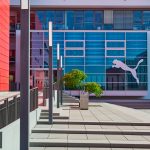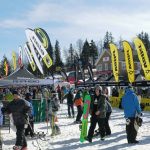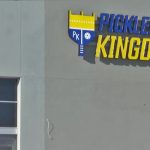REI submitted the designs for its new campus to the City of Bellevue for Design Review. The submission represents another step in the co-op’s vision to create a hub that is accessible, sustainable, and connected to the community. The review process typically takes 9-12 months and, once approved, REI can begin construction. REI still plans to relocate its campus in 2020.
“Our challenge is to build a world class, sustainable headquarters that brings the best of outdoor life into a collaborative work setting for our employees,” said Eric Artz, REI’s chief operating officer. “The Spring District gives us the opportunity to help build a neighborhood from the ground up and rethink how we work, commute and gather. We’re excited to work with the City of Bellevue, King County and other partners throughout the region.”
Sustainable Design
As a co-op that cares for the long-term health of the outdoors, REI incorporates sustainable design in all of its buildings across the country. For its new campus, REI and its partners will follow the United States Green Building Council’s (USGBC) Leadership in Energy and Environmental Design (LEED) evaluation criteria—the preeminent program for the design, construction, maintenance and operations of high-performance green building. REI currently has more than 1.1 million square feet of LEED-certified buildings, including the co-op’s newest distribution center in Arizona, which achieved LEED Platinum and is the most sustainable distribution center in the country. The co-op will also use Salmon Safe as a guideline for environmental impact to local watersheds.
At this early stage in the design process, REI has made several sustainable design decisions, including:
- The building is positioned for optimal solar orientation
- Windows will be strategically placed to maximize daylight into the workplace
- Energy efficiency features will be incorporated throughout the building
- The landscape will feature edible garden species and native vegetation
Hub for REI and Community
REI’s vision is to create a campus that brings co-op employees and the local community together. The public can easily move across the campus on a series of three public pedestrian paths, linking nearby transit and residential areas. The space may also include public amenities such as a retail location, coffee shops and food options.
Co-op employees will enjoy several features intended to create a collaborative working environment. The building will feature connector bridges that span across the courtyard spaces, outdoor staircases, rooftop walkways and outdoor meeting spaces, offering alternate ways for employees to get around campus. There will also be outdoor space for employees to exercise and host community events.
REI is working with the City of Bellevue, King County and other partners to increase commuting options in Bellevue and throughout the Puget Sound region. The co-op publically supported Proposition 1 (also known as Sound Transit 3) last year, and continues to work with local government and community leaders to improve bike connectivity throughout the region.
Investing in the Community
REI continues to invest in local communities throughout the country and the Puget Sound region. In 2016, REI and The REI Foundation invested $9.3 million in more than 300 nonprofit partners, including more than $750,000 in outdoor places and causes in and around the Puget Sound region. The co-op’s new campus is located in the Mountains to Sound Greenway (MTSG), a linked network of green spaces and historic towns that REI has supported for years through its investment in the MTSG Trust.
REI is a strong supporter of the Eastside Rail Corridor (ERC), a 42-mile multi-use trail that will stretch from Renton to Woodinville when complete. The new campus and recently-opened Bellevue store are both located along the ERC, and the co-op recently invested $20,000 in the Eastside Greenway Alliance for their ongoing work in collaboration with King County. REI is also working closely with city, state and federal leaders to improve safe bike lane connectivity. This work includes partnering with the city on the implementation of the Bicycle Rapid Implementation Plan—a 57-mile network of new and improved bike lanes—and support of the public and private effort to transform the Wilburton Trestle into an elevated pedestrian bridge as part of the ERC.













